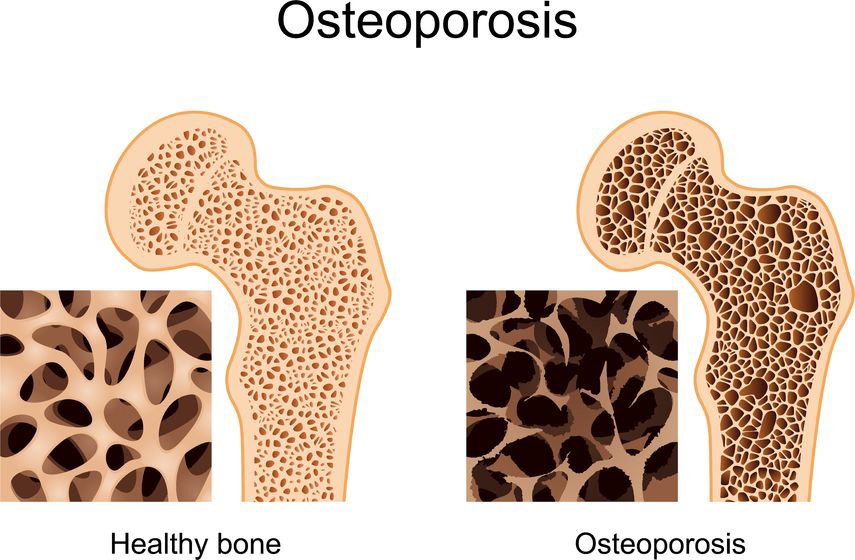General Health Tips & News
Osteoporosis
By I.K. (staff writer) , published on November 07, 2020

Medicine Telehealth Health Osteoporosis
Osteoporosis causes weak and brittle bones. so brittle that a fall or even slight stress, such as bending or coughing, can induce a fracture. Osteoporosis-related fractures are most prevalent in the hip, wrist or spine. Bone is a living tissue that is continually breaking down and replaced. Osteoporosis happens when the development of a new bone does not occur with the deterioration of the old bone.
Osteoporosis affects all men and women of all ages. But white and Asian women, particularly elderly women who are past menopause, are at the highest risk. Medications, a balanced diet and weight-bearing exercise can help avoid bone loss or reinforce weak bones.
Symptoms
In the early phases of bone loss, there are usually no signs. But once your bones are weakened by osteoporosis, you may have signs and symptoms that include:
- Back pain caused by broken or collapsed vertebrae
- Loss of height over time
- A stooped posture
- A bone that breaks much easier than usual
Causes
Your bones are in a continuous cycle of renewal — new bones are formed and old bones are degraded. When you're young, your body makes new bones faster than it tears down old bones, and your bone density increases. After the early 20s, this mechanism speeds down, and most individuals hit their optimum bone mass before 30 years of age. As people age, bone mass is lost faster than it is produced.
How likely you are to experience osteoporosis depends partially on how much bone mass you have gained in your youth. Peak bone mass is somewhat hereditary and often varies by ethnic group. The higher your bone density, the more bone you have "in the bank" and the less expected to experience osteoporosis as you age.
Prevention
Good diet and daily exercise are important to keep your bones safe throughout your life.
Body weight
Underweight raises the risk of bone deterioration and fractures. Excess weight is now believed to raise the likelihood of fractures in the arm and wrist. As such, keeping healthy body weight is beneficial for bones, just as it is beneficial for overall wellbeing.
Calcium
Men and people between the ages of 18 and 50 require 1,000 milligrams of calcium a day. This daily level is raised to 1,200 milligrams as women turn 50 and men turn 70. If you find it hard to get enough calcium from your food, consider taking calcium supplements. Too much calcium, however, has been related to kidney stones. Although not yet clear, some experts say that too much calcium, particularly in supplements, can increase the risk of heart disease.
Vitamin D
Vitamin D increases the ability of the body to absorb calcium and increases bone strength in other ways. People may get some of their vitamin D from sunlight, but this might not be a good source if you live in high latitudes, if you are house-bound, or if you use sunscreen frequently or limit sunshine because of the possibility of skin cancer.
References
https://www.ncbi.nlm.nih.gov/pmc/articles/PMC5335887/
https://www.ncbi.nlm.nih.gov/pmc/articles/PMC6059859/
https://www.ncbi.nlm.nih.gov/pmc/articles/PMC1888612/
Find articles related to: Medicine Telehealth Health Osteoporosis
More articles about General Health Tips & News
Back to the Health Tips Index




